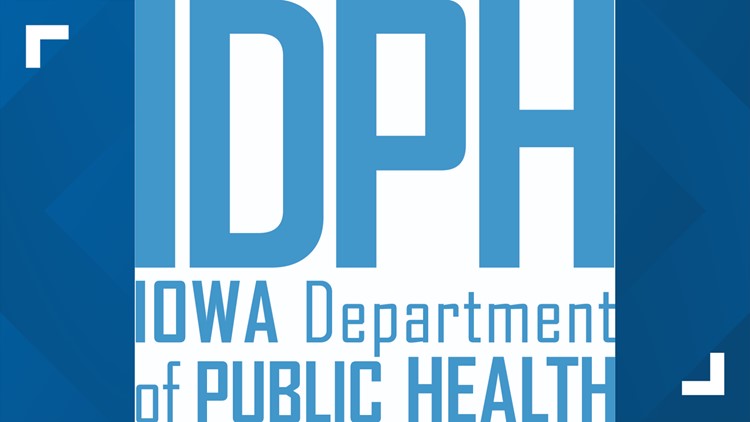DES MOINES, Iowa — As of March 14, the coronavirus is now in community spread in the state of Iowa, according to Gov. Kim Reynolds.
The newest positive case of COVID-19 comes from Dallas County. The individual is an older adult (age 61-80).
Based on the new case, and the announcement of community spread in Omaha earlier Saturday evening, the Iowa Department of Public Health has determined there is now community spread within our state.
According to the IDPH, "community spread" occurs when individuals have been infected with the virus, but can't specifically identify the source of the infection, or do not know how or where they became infected.
17 of Iowa's current 18 positive cases have been related to travel to and from areas where the virus is especially abundant, but the latest case has no recent travel history.
Now that the virus has reached community spread within our state, there are new recommendations from the IDPH on how to combat it:
- People aged 60 or older with underlying health conditions should stay at home and avoid gatherings or other situations of potential exposure. This includes travel to infected places abroad and within the United States.
- If there's an area that is touched frequently, clean it at least once a day.
- Limit activities (i.e. group congregation, religious services), especially for individuals with underlying health conditions.
- Make sure hand hygene supplies (hand sanitizer, soap and water, etc.) are readily available in buildings.
- Cancel large gatherings. The recommended group size caps out at 250, but the specific threshold is up to the community's discretion.
- Consider taking personal measures to distance yourself socially. Avoid large gatherings, limit the number of people you want to be around, work remotely if at all possible.
- Encourage staff to work from home if feasible, especially people at increased risk of severe illness.
- Limit non-essential work travel and gatherings.
- Follow CDC guidance regarding school closures. If a school-based case of the virus is identified, implement a short-term suspension for school cleaning and contact tracing. Also consider altering schedules to avoid mixing (i.e. stagger recess, entry/dismissal times).
- Cancel extracurricular activities as needed.
To find more local information on COVID-19 (cases, local trends of the virus), visit the IDPH website.
The phrase "underlying health condition" was mentioned a few times above, but what exactly does that mean?
According to the IDPH, an underlying health condition is a health condition that someone already has that may increase the risk of serious COVID-19 retraction. This includes, but isn't limited to:
- Blood disorders (i.e. sickle cell disease, on blood thinners)
- Chronic kidney disease as defined by your doctor (told to avoid or reduce the dose of meds because of kidney disease, under treatment for kidney disease)
- Chronic liver disease (i.e. cirrhosis, chronic hepatitis)
- Compromised immune system: (i.e. HIV or AIDS, undergoing cancer treatments, received an organ or bone marrow transplant, taking high doses of sorticosteroids or other immunosuppressants)
- Current pregnancy, or having been pregnant within the last two weeks
- Endocrine disorders (i.e. diabetes)
- Metabolic disorders (i.e. inherited metabolic disorders, mitochondrial disorders)
- Heart disease
- Lung disease (i.e. asthma, chronic bronchitis or emphysema, on oxygen)
- Neurological, neurologic and neurodevelopmental conditions (i.e. brain, spilan cord or peripheral nerve conditions, cerebral palsy, epilepsy, stroke, intellectual disabilities, muscular dystrophy)



